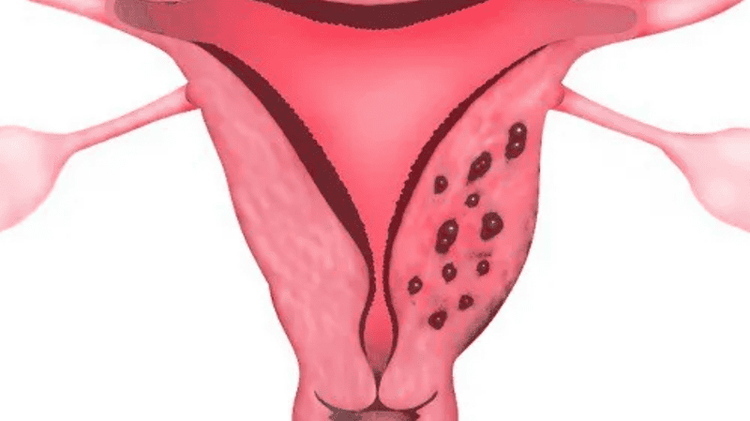This is an automatically translated article.
There are many reasons why couples have difficulty conceiving leading to infertility. Of these, about one-third of the cases are attributed to men, one-third to women and the rest to both sexes. Here are some reasons for delay in having a baby that you should know for early examination.
1. Not trying long enough is one of the reasons for delay in having children
“Why is it late to get pregnant” is a question that makes many couples wonder. The first thing to consider is how long you and your partner have been trying to conceive. You may feel like you've been trying for so long - but it's important to know that many couples won't get pregnant right away. About 80% of couples get pregnant after 6 months of "dropping". About 90% get pregnant after 1 year of trying to get pregnant.
You should go to the fertility clinic if you are female:
Under 35 years old, have sex 2-3 times a week for 6 months without getting pregnant; Over 35 years old, having sex 2-3 times a week for 1 year without getting pregnant.
2. Not ovulating causes infertility in women
Failure to ovulate is a common cause of female infertility and it can be caused by many conditions.
Polycystic ovary syndrome PCOS is one of the possible causes of this phenomenon. Other possible causes include primary ovarian failure, thyroid dysfunction, hyperprolactinemia, excessive exercise, overweight, and underweight.
Most women who are having problems with ovulation have irregular periods. However, regular menstruation does not guarantee that ovulation is taking place normally. If you have irregular periods, talk to your doctor, even if you haven't been trying to conceive for a full year.

“Chậm có thai vì sao” là câu hỏi của rất nhiều cặp vợ chồng
3. Problems in the husband
20 to 30% of infertile couples have fertility problems on the husband's part. Another 40% detected infertility on both sides. Male infertility rarely has observable symptoms that require a semen analysis.
4. Age-Related Infertility Age has an effect on egg quality and quantity. Some people think that if they still have regular periods then fertility is still good, but this is not true. Women after 35 and men after age 40 can take longer to get pregnant.
5. Blocked Fallopian tubes Ovulation causes about 25% of female infertility cases. It is also due to blocked fallopian tubes, problems with the structure of the uterus or endometriosis.
If anything prevents the fallopian tubes from working properly or prevents sperm or egg from meeting, you will not be able to get pregnant.
Some people with blocked fallopian tubes have signs of pelvic pain, many others have no symptoms. Only fertility testing can determine if your fallopian tubes are open. In it, your doctor may order you to have an HSG, a specialized X-ray used to determine if your fallopian tubes are blocked.
6. Endometriosis
Endometriosis is one of the causes of delay in having children. This condition is when endometrial-like tissue (tissue lining the inside of the uterus) grows in locations outside the uterus. It is estimated that up to 50% of women with endometriosis will have difficulty getting pregnant. The most common sign of endometriosis is pain during menstruation. However, not all women with endometriosis have these symptoms. Some women find out they have endometriosis through fertility treatment.
Endometriosis is often misdiagnosed or simply missed. Endometriosis cannot be diagnosed with blood tests or ultrasound and requires diagnostic laparoscopy.
7. Due to other diseases causing delay in having children
Underlying medical conditions that can lead to infertility in both men and women. For example, a thyroid imbalance or undiagnosed diabetes can lead to infertility. Although poorly understood, depression is thought to be linked to infertility. Certain autoimmune diseases such as lupus erythematosus or untreated sexually transmitted diseases can also cause infertility.
There are certain drugs that can affect fertility. However, you must not stop taking your medication on your own without first talking to your doctor. Before taking any medication, tell your doctor that you are trying to get pregnant.

Bệnh lạc nội mạc tử cung là một trong những nguyên nhân chậm có con
8. Infertility of unknown cause
Between 10% and 30% of infertile couples never find out why they are late to have children. Some experts argue that there is no such thing as unexplained infertility but only undetected or undiagnosed problems. However, there are still many cases of unexplained infertility. Even so, just because you don't have an answer doesn't mean you can't get treatment. You can be treated for infertility even if your diagnosis is unexplained.
Many couples put off testing and treatment, waiting for a miracle or thinking they should just "try a little harder" first. This is wrong, for a number of reasons make infertility worse. So, if you've been trying to conceive for a year (or 6 months if you're 35 or older), visit a specialist hospital. The sooner you see your doctor, the more likely fertility treatments will work for you.
Vinmec IVF Reproductive Center is the address of infertility - infertility treatment chosen by many couples. So far, the Center has performed assisted reproduction for many infertile couples with a success rate of over 40%. This rate is equivalent to developed countries such as the UK, USA, Australia,...
The center gathers a team of leading experts in the field of obstetrics and gynecology nationally and internationally, trained in centers leading in the world such as in the US, Singapore, Japan, Australia and famous fertility centers in the world.
With a high level of expertise and extensive experience, Vinmec IVF Center's experts are capable of synchronously and comprehensively deploying the most advanced assisted reproductive techniques today, helping realize the dream of becoming a parent of hundreds of families across Vietnam.
Reference source: verywellfamily.com













